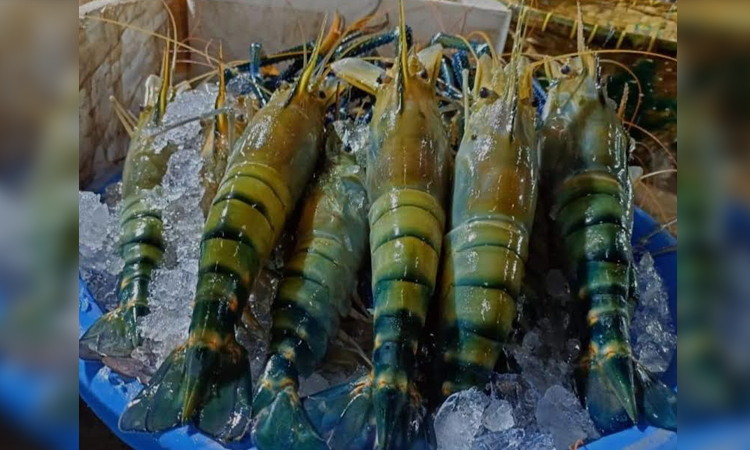News Flash
News Flash

KHULNA, Sept 15, 2025 (BSS) - Shrimp production and exports from Khulna have witnessed a remarkable rebound during the interim government period, reversing years of decline and reviving hopes for the sector once hailed as the country's "white gold."
Once second only to raw jute in export earnings, shrimp had lost its shine over the past decade amid international competition and the dominance of vannamei shrimp in neighboring countries.
But new measures by the Department of Fisheries, coupled with a recovery in global demand, have pushed the industry back on track.
According to the Export Promotion Bureau (EPB), Khulna earned Tk 11,300 crore from shrimp exports in the last five years, with plans underway to double the figure in the next five.
Exporters in the region fetched Tk 3,483.24 crore from July 2024 to January 2025, up Tk 780.45 crore from the same period a year earlier.
During FY 2024-25, Khulna produced 1,23,151 metric tons of shrimp, of which 19,512 tons were exported, generating Tk 2,499 crore. Frozen shrimp exports reached 13,019.80 tonnes worth Tk 1,990.39 crore, accounting for 42.19 percent of the country's total fish exports.
Over the past five years, the region also exported 1,53,388 tonnes of white fish worth Tk 13,456 crore and 1,02,340 tonnes of shrimp worth Tk 11,301 crore.
To sustain growth, the Fisheries Department has introduced a series of initiatives: training 10,750 farmers in modern shrimp farming methods, supporting 7,500 farmers with inputs, promoting cluster-based farming that can boost yields 2-5 times, organizing field demonstrations, ensuring biosafety and hygiene standards and encouraging third-party certification to secure higher international prices.
"To boost exports, there's no alternative to increasing production," said Lipton Sardar, Divisional Fisheries Inspection and Quality Control Officer in Khulna.
He stressed the need for long-term shrimp-focused projects, zoning of cultivation areas, reliable supply of disease-free fry and feed, and stricter monitoring of inputs and farm practices.
Zeenat Ara, Director of EPB Khulna, linked the recent upturn to global economic recovery, a stable foreign currency situation, and Bangladesh's improving international image.
Industry insiders, however, remain cautious. "Khulna once had 63 shrimp processing plants, but 33 have closed due to falling production and weak global demand," said Tarikul Islam Zahir, Senior Vice President of the Frozen Foods Exporters Association.
He urged the government to provide subsidies on electricity and production costs to help the industry stay competitive.
Exporters note that demand and prices in Europe remain under pressure, while delayed payments, high costs, and disease outbreaks have posed challenges.
Global shocks from the pandemic to the Russia-Ukraine war and recent political instability also hit shipments hard.
Even so, the recent surge in production and exports has renewed optimism among farmers, processors, and exporters, offering a fresh chance for Khulna's shrimp industry to reclaim its lost glory.